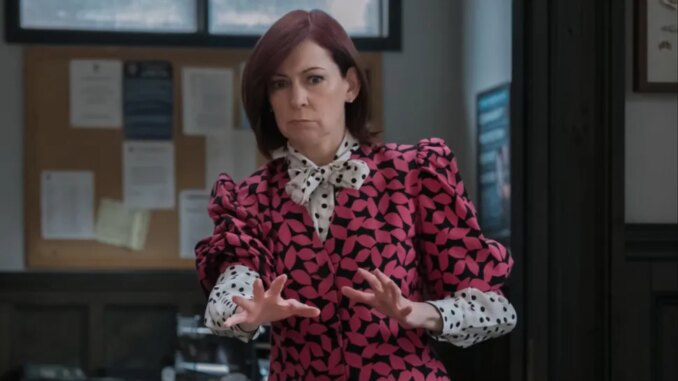
The Enduring Chaos: Why Elsbeth’s Unsolved Problems Make Season 3 So Compelling
Elsbeth Tascioni, the titular heroine of the charming and unconventional legal dramedy, is a whirlwind of eccentric brilliance. She sees connections others miss, navigates social complexities with an almost childlike wonder, and solves crimes with a method that can only be described as organized chaos. While some shows might smooth over their protagonists’ rough edges, offering neat resolutions and predictable character arcs, Elsbeth understands that true depth lies in the enduring messiness of life. The fact that Elsbeth’s problems are not magically disappearing in Season 3 is, surprisingly, one of the show’s greatest strengths. It’s a testament to its commitment to authenticity and a key ingredient in its captivating appeal.
One of the most prominent and persistent threads in Elsbeth’s story is her struggle with the New York legal system itself. She’s an observer, an outsider, and her methods, while ultimately effective, often ruffle feathers and raise eyebrows. In a world that prizes procedure and precedent, Elsbeth’s improvisational approach can be seen as disruptive, even disrespectful. This tension isn’t resolved; it simmers. Season 3 continues to showcase Elsbeth battling against bureaucratic inertia, navigating the egos of high-powered lawyers, and facing the occasional condescending dismissal. Instead of transforming her into a polished, conformist legal eagle, the show allows her to remain delightfully, stubbornly, herself. This resistance to simplification is crucial. It allows Elsbeth to continue to challenge the status quo, both within the fictional world of the show and, implicitly, within the audience’s own perceptions of justice and authority.
Furthermore, Elsbeth’s personal life, while not the show’s primary focus, is a constant reminder that even brilliant minds wrestle with everyday anxieties. The hints of her past, the subtle glimpses into her anxieties, and the occasional moments of vulnerability all paint a picture of a woman who, despite her remarkable abilities, is fundamentally human. She’s not a flawless superhero, but a quirky, complex individual with her own set of emotional baggage. In Season 3, we see echoes of this – the unspoken grief of a past relationship, the quiet anxieties about fitting in, and the subtle struggle to balance her personal life with her demanding career. By refusing to sanitize Elsbeth’s emotional landscape, the show allows us to connect with her on a deeper level. We see ourselves in her struggles, her insecurities, and her enduring capacity for empathy.
The lack of a neat resolution to Elsbeth’s problems also allows the show to explore deeper themes about human nature and the complexities of justice. Her unconventional approach often highlights the flaws in the traditional legal system, exposing the biases and prejudices that can influence outcomes. By not providing easy answers, Elsbeth encourages us to grapple with these uncomfortable truths. The show doesn’t shy away from the moral gray areas of the cases she investigates, forcing us to consider the motivations and circumstances of those involved. This nuanced exploration wouldn’t be possible if Elsbeth were simply a flawless problem-solver. It’s her own ongoing struggles, her own internal compass pointing north amidst the fog of ambiguity, that allows her to navigate these complex moral landscapes.
Finally, the enduring nature of Elsbeth’s challenges provides a sense of realism that anchors the show, preventing it from veering too far into pure fantasy. In a world where television often presents idealized versions of reality, Elsbeth offers a refreshing dose of honesty. It acknowledges that life is messy, that problems don’t always have easy solutions, and that even the most brilliant minds are still works in progress. This imperfection, this ongoing process of growth and adaptation, is what makes Elsbeth so relatable and enduringly appealing.
In conclusion, the fact that Elsbeth’s problems aren’t going away in Season 3 is not a flaw, but a deliberate and compelling choice. It allows the show to explore deeper themes, challenge established norms, and offer a more nuanced and authentic portrayal of its protagonist. By embracing the enduring chaos of Elsbeth’s life, Elsbeth transforms from a simple procedural into a captivating exploration of human nature, justice, and the beauty of embracing the messy, imperfect journey of life. It’s a testament to the show’s creative vision and a key reason why it continues to resonate with audiences seeking something more than just another crime drama.
